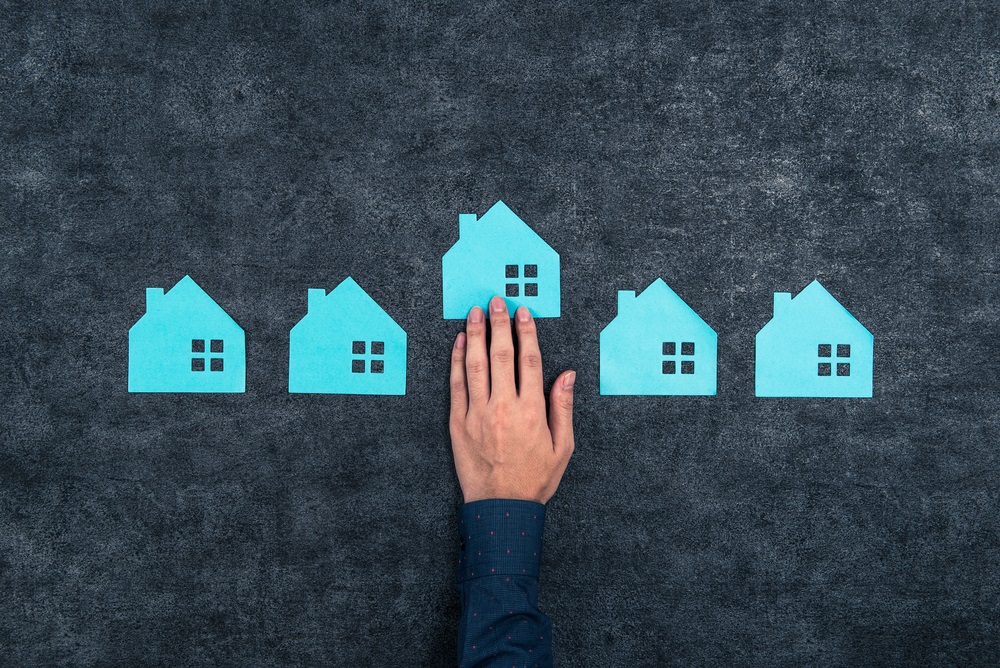Michelle Niziol, CEO of IMS Property Group, explains what you should consider if you are thinking about taking out a long-term fixed rate mortgage
 According to the latest research from the Mortgage Advice Bureau, more than a third of homeowners with mortgages would consider a 10-year fixed product.
According to the latest research from the Mortgage Advice Bureau, more than a third of homeowners with mortgages would consider a 10-year fixed product.
Financial stability is one of the driving forces for this type of mortgage. Sixty-eight percent of respondents in the Mortgage Advice Bureau’s study cited that financial peace of mind was a major factor, and 56% were concerned about interest rate increases.
Ten-year fixed rate mortgages have only really begun to come back to the market after the financial crash in the past year or two. So, why are they now really starting to take off with consumers?
Despite mortgage rates being at their lowest level for decades, two increases in the Bank Base rate in less than a year – from 0.25% to 0.75% – have got mortgage holders rushing to remortgage onto better deals.
The rates on longer fixed term products, such as five and 10-year fixed rate mortgages, have become much more competitive over the past year – currently, HSBC has a 10-year fixed mortgage at 2.49%, with a maximum 60% loan-to-value.
Whilst some of the major high street lenders are offering 10-year fixed rate products, it is the smaller more niche banks, building societies and specialist providers who are offering the bulk of these types of mortgages.
As with all things, there are pros and cons associated with locking into a long-term fixed rate mortgage. These types of mortgage don’t suit everyone. It really depends on your personal circumstances and finances; so make sure you speak with a mortgage broker before making any decisions.
We’ve broken down some of the things you should consider if you’re thinking of taking out one of these products.
If you’re concerned about interest rate increases
After years of record low mortgage rates, rate rises are expected to increase multiple times over coming years (although nothing is certain).
Choosing a 10-year fixed-rate mortgage means that your mortgage rate will remain constant should interest rates increase. It’s a way to create stability in an uncertain mortgage environment.
Whilst this is good to have a consistent payment for a decade, you must be mindful that interest rates are likely to be higher when you come off the fixed rate period. This can be a shock to the system after having a very low interest rate for so long.
If you want to avoid extra mortgage costs
Switching your mortgage every couple of years, means that you’re likely to incur administration and valuation fees each time you do it. The fees may only amount to a few hundred pounds each time but over 10 years, that total adds up. A fixed-rate mortgage can help you avoid these additional costs.
House prices are expected to fluctuate significantly
If you are on a short-term fixed rate mortgage and house prices fall before it’s time to remortgage, you may not be able to access top mortgage rates because your loan-to-value will be higher. Locking in a long-term fixed rate may give you protection should the market dip.
You’ve got plans to purchase other credit products
A credit check is required for each mortgage application, which can throw a real wrench in your plans if you need credit to purchase other products. Longer stretches of time between credit checks gives more financial freedom, so you won’t need to factor in a credit check every few years.
Your lender might change their criteria.
Lenders change their mortgage criteria regularly to consider changes in the market conditions as well as regulation. A longer fixed rate period will give you more time to sort out an alternative should you need to change lenders and your mortgage.
What you need to be aware of with longer-term fixed rate mortgages
Higher interest rates at the time of getting a longer-term fixed mortgage
With a 10-year fixed rate mortgage, you’ll pay an increased rate in exchange for security. The lowest rate for a 10-year fixed rate mortgage is currently 2.49%, while a two-year fixed rate mortgage is around 1%.
Choosing a fixed-rate mortgage means that you make the same monthly mortgage payment for a set period. If interest rates increase or decrease over that time, you will continue to pay the same, until the end of the fixed rate period.
This is an advantage if interest rates go up, but if they go down, you won’t be able to take advantage of lower rates. However, the security of an affordable rate is impossible for many people to ignore, and there are obvious benefits to knowing that you can afford your mortgage each month.
You’ll have to pay an early repayment charge if you move
If you’re planning on moving earlier than the end date of your mortgage, the early repayment charges you will need to pay for exiting your mortgage deal early could be hefty (up to 7% of the outstanding amount, in some cases).
Some lenders are willing to work with you on this, but many are not, so read the fine print in your contract and consider a different type of mortgage if you don’t think you will own your property for the next ten years.
The other alternative for those looking to move before the end of the fixed period is porting your mortgage. This is where you transfer your current mortgage to a new property. Not all mortgages are portable, so you would need to check that before taking the mortgage out or if you already have a mortgage and need to move.
When you port your mortgage, you effectively must reapply for a mortgage. You could find that you don’t qualify for a mortgage with that lender or are unable to borrow more to buy your next home. As always, it is best to speak with a mortgage broker or your current lender about portable mortgages.
You’ll pay an early repayment charge if you pay off the mortgage early
If your financial situation changes and you’re able to pay off your mortgage quicker than planned, you will be charged an early repayment charge if you pay the outstanding balance before the end of the mortgage period. If you’re considering a ten-year mortgage, think carefully about how this might affect you.
An unexpected business success or inheritance may give you the opportunity to pay off a significant portion of your mortgage, but the early repayment changes on a long-term mortgage, may quickly rid you of that option.
The decision to choose a 10-year mortgage often has more to do with the circumstances in the borrower’s life rather than the interest rates offered by the lender. Many people choose long-term mortgages because of the security they offer as they move into different life stages.
Some parents choose these mortgages to assure that their rates will stay the same as their children go to university, and others choose them as security moving through their retirement.
Still others choose the long-term fixed-rate mortgage when they know that they have found their ‘forever’ property, and don’t see themselves moving into a new home for a considerable period of time.
Some simply fear the volatility of the market and remember not so long ago when interest rates were double (or even triple) their current amounts.
Stability and security appear to be the common threads that run through those who choose to lock down their mortgage rates for ten years. The current uncertainty in the market is making borrowers nervous – in truth, no one knows what will happen between now and 2028.
However, the important thing to remember about the 10-year fixed-rate mortgage is that it has everything to do with the situation of the borrower. If stability is the most important thing in your life now, or if you don’t see your circumstances changing significantly in ten years, then the 10-year mortgage may be a good solution.
Michelle Niziol is the CEO of IMS Property Group and an experienced mortgage broker. For more information about mortgages, contact Michelle at michelle@imsinternet.co.uk or phone 01869 248339.














